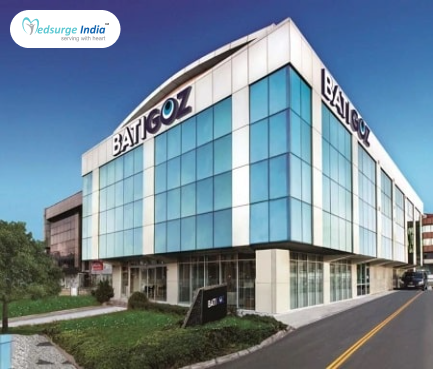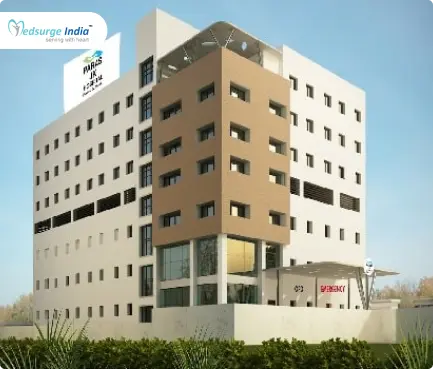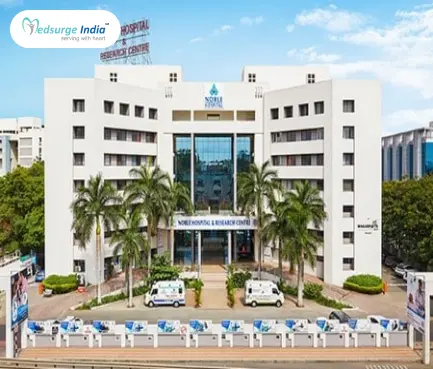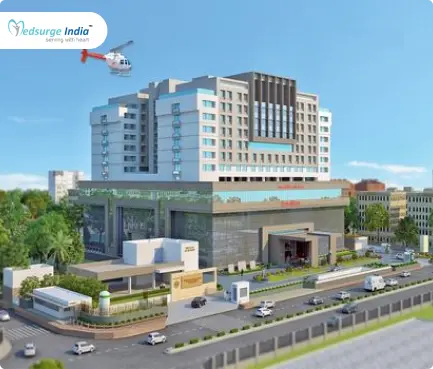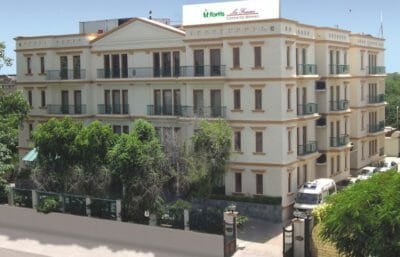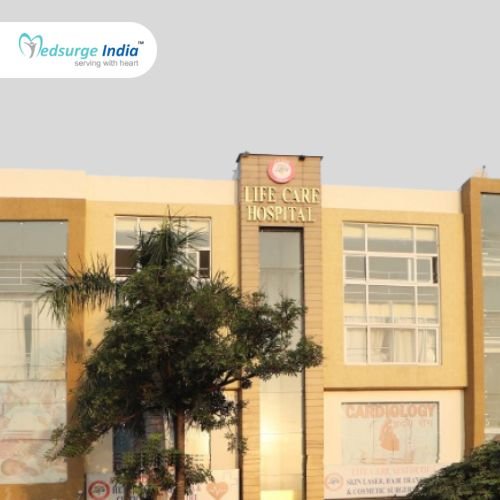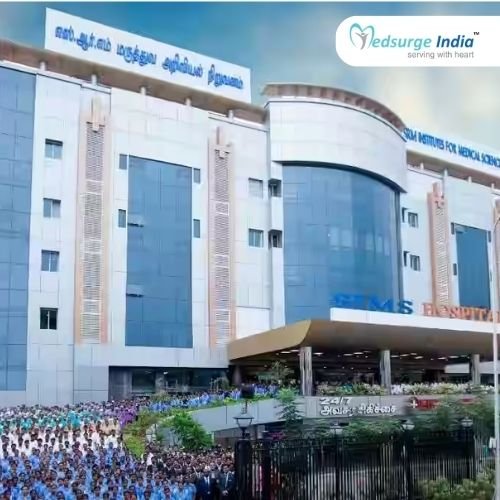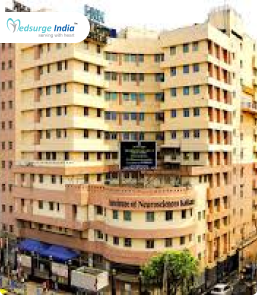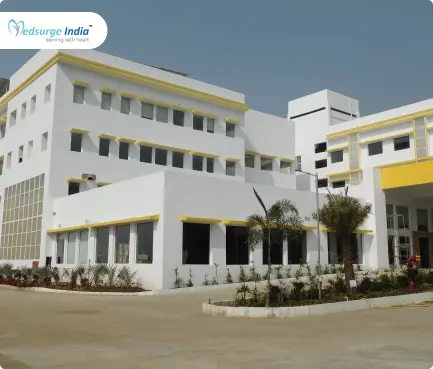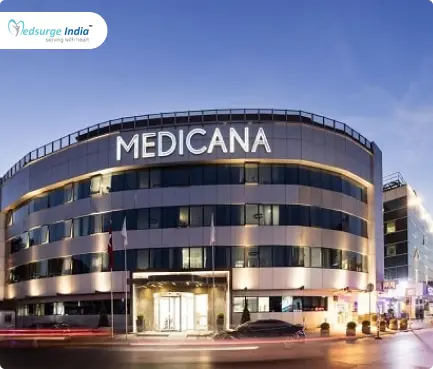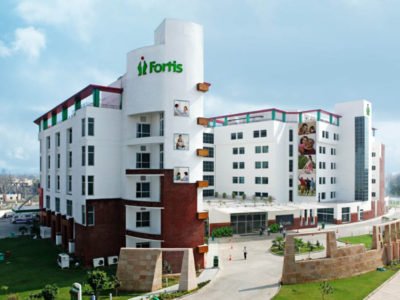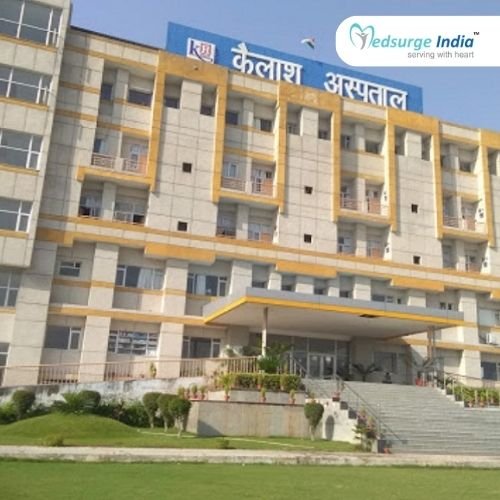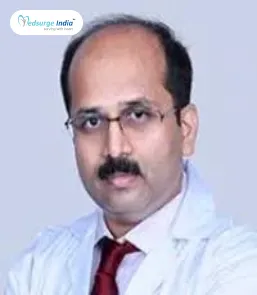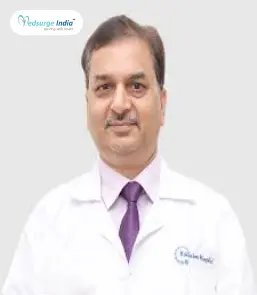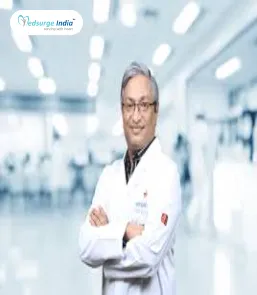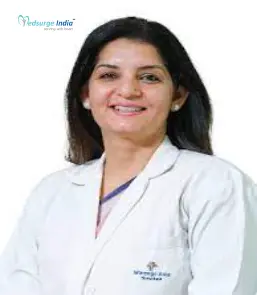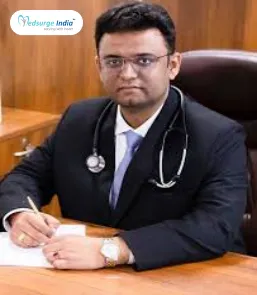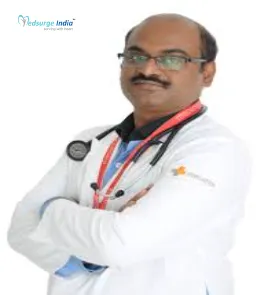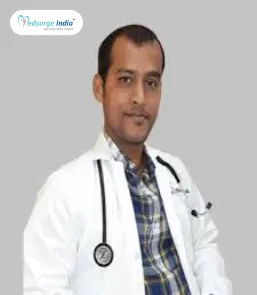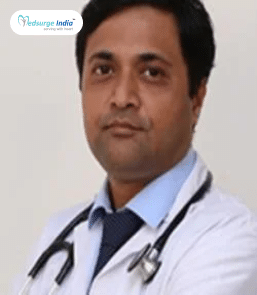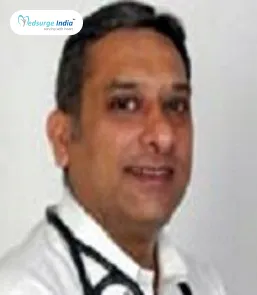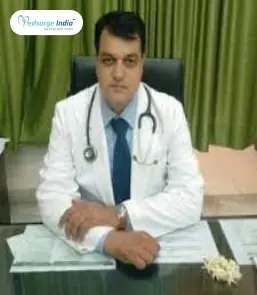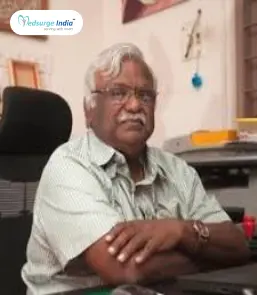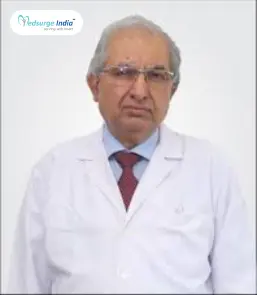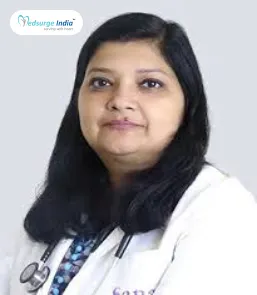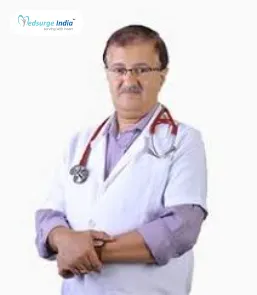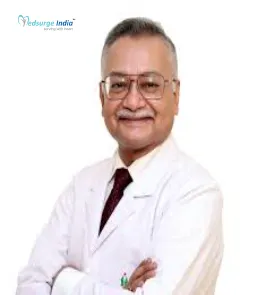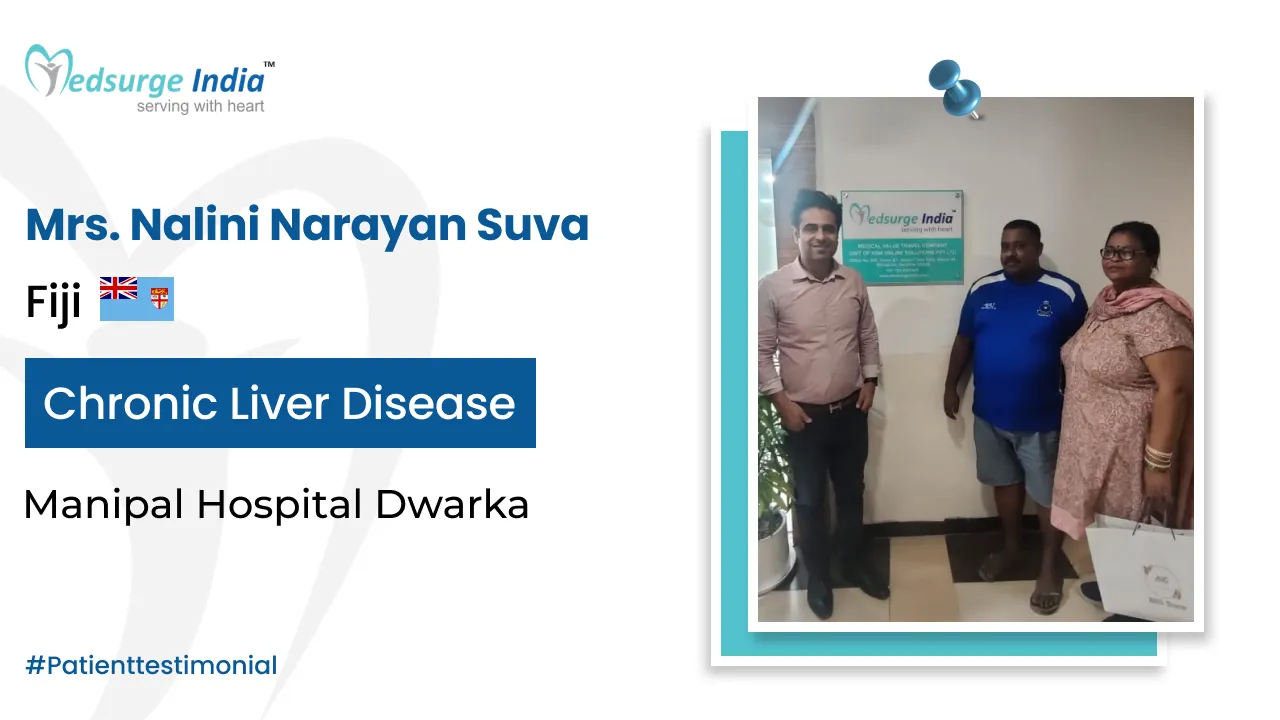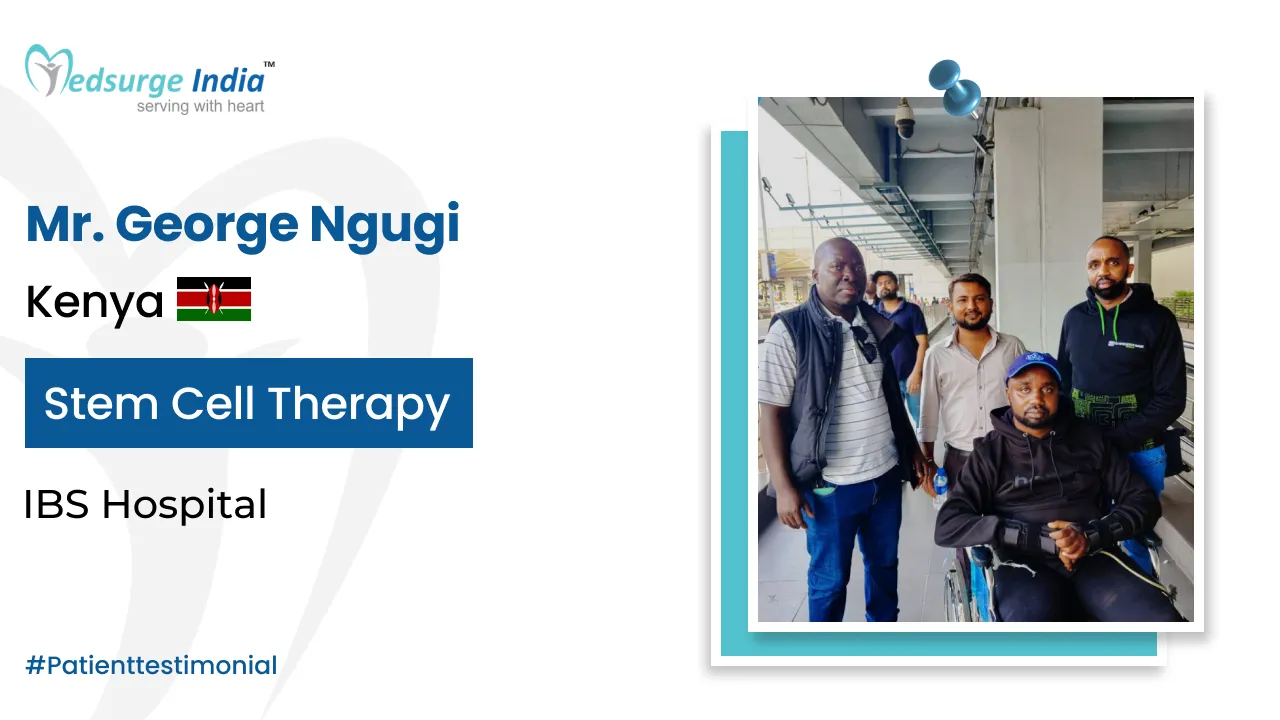
Over time, COPD causes damage to your lungs. It might begin with minor symptoms before getting worse. It is frequently brought on by prolonged exposure to irritant gases or particulates, most frequently from cigarette smoke. Heart disease, lung cancer, and a number of other diseases are more likely to occur in people with COPD. Treatment can lessen symptoms and delay the onset of illness. Before the treatment plan is implemented, a physical evaluation is performed as part of the COPD treatment process in India. This helps while examining each symptom. To evaluate if a patient could benefit from a COPD treatment that is now available, a pulmonologist will combine modern genetic testing with additional laboratory tests or diagnostic methods.
When compared to other wealthy countries, India’s cost of COPD treatment is very low. The success may be partially attributed to the pulmonologist’s experience and the state-of-the-art medical equipment used in Indian institutions. In addition to these advantages, India’s low costs without lowering clinical standards play a critical role in its widespread appeal.
What Is COPD?
A collection of progressive lung disorders is known as chronic obstructive pulmonary disease or COPD. Emphysema and chronic bronchitis are the most prevalent of these conditions. Both of these disorders are common among COPD sufferers.
Emphysema progressively kills the air sacs in your lungs, obstructing the passage of air outward. The bronchial tubes become inflamed and constricted due to bronchitis, which makes it possible for mucus to accumulate. If left untreated, COPD can hasten the onset of the illness, cause cardiac issues, and exacerbate respiratory infections.
COPD Treatment Cost in India
COPD treatment cost in India starts from INR 1,83,000 (2,200 USD). India has significantly lower healthcare costs than other countries. Furthermore, the quality of the medical services and treatment provided there is on par with that of the best hospitals in the world. Even without taking into account the expenditures of travel, lodging, and meals.
The entire cost of COPD Treatment in India can vary depending on many criteria, such as
- The price of treatment packages can depend on the hospital’s preference.
- Doctor’s competence and experience in the subject.
- The patient’s situation: The patient’s disease and whether additional modalities are required for comprehensive treatment.
- Duration of hospitalization and stay in the country.
- Need for post-operative care.
- Hospital room classification.
What Are the Symptoms of COPD?
Breathing becomes more difficult with COPD. Initial signs might include intermittent coughing and shortness of breath, which are moderate symptoms. As it worsens, the symptoms may become more frequent to the point that breathing may become more challenging.
It’s possible that you will cough, feel tight in the chest, or produce more sputum than usual. Some COPD sufferers experience acute exacerbations, which are significant symptom flare-ups. The early stages of COPD symptoms might be relatively modest. They could be misdiagnosed as a cold.
Early signs consist of:
- Occasionally having breathing problems, especially after exercising
- A slight yet persistent cough
- Often needing to clear your throat, especially in the early
You could begin to make little adjustments, like avoiding the stairs and missing workouts. Symptoms may worsen with time and become more difficult to ignore. As the lungs deteriorate more, you could feel:
- Even minor types of activity, such as going up a set of stairs, can cause shortness of breath.
- Higher-pitched loud breathing known as wheezing, especially during exhalations
- Chest constriction
- Mucus- or non-mucus-producing persistent cough
- Need to daily remove mucus from your lungs
- Recurrent respiratory illnesses like the flu or the cold
- lack of energy
The following symptoms may also appear in the later stages of COPD:
- Fatigue
- Feet, ankles, or legs swelling
- Losing weight
If you presently smoke or are frequently around secondhand smoke, your symptoms are probably going to be considered severe.
Why is India Considered a Top Destination for COPD Treatment?
How far the sector has progressed is clear from the tremendous changes that have occurred in Indian medical tourism over the last few years. Healthcare is one of the industries with the quickest growth among those that generate money. Many governmental and commercial groups provide assistance for the healthcare industry.
Due to the high success rate, accessibility of new technology in Indian hospitals, and low cost of operations, many individuals migrate to India in pursuit of better medical care.
India has an advantage over other countries when it comes to medical tourism because of the following:
- Most of the medical team members recruited by Indian hospitals have earned their training at hospitals in the US, Europe, or other advanced economies.
- Travelers of all backgrounds may afford first-rate services and luxurious accommodations.
- The significant majority of medical specialists are proficient in English.
- India is home to some of the nation’s finest nurses. India has about 1000 accredited nursing training programs, the majority of which are connected to teaching hospitals, and each year close to 10,000 nurses graduate from them.
- Large foreign corporations provide cutting-edge medical and diagnostic technologies to many of India’s leading hospitals.
What Are the Causes of COPD?
Smoking tobacco is the primary cause of COPD in developed nations. The more you smoke and the longer you’ve smoked, the greater your chance of having COPD. Although many smokers with extended smoking histories may experience decreased lung function, only a small percentage of chronic smokers acquire clinically obvious COPD. Smokers might acquire less typical lung diseases. They could be incorrectly diagnosed with COPD up until a more complete examination is done.
Other factors include
- If you are exposed to chemicals and gases at work, you run the risk of developing COPD. COPD can also be brought on by prolonged exposure to air pollution and dust inhalation.
- Homes in poorer nations are frequently inadequately ventilated, requiring families to take in fumes from burning fuel used for cooking and heating in addition to cigarette smoke.
- Possible genetic propensity to COPD development. Alpha-1-antitrypsin deficiency affects up to 5 percent of persons with COPD, according to estimates.
- The liver may also be impacted by this deficit, which damages the lungs. There could also be other related genetic variables at work.
How Is COPD Diagnosed?
Misdiagnosis of COPD is rather prevalent. Many COPD sufferers might not get a diagnosis until their condition is advanced. Your doctor will examine your signs and symptoms, go over your past medical and family history, and inquire about any exposure you may have had to lung irritants, particularly cigarette smoke. To diagnose your problem, your doctor may conduct a number of tests. Test include:
- Laboratory tests: Although lab tests aren’t used to diagnose COPD, they may be used to identify the origin of your symptoms or negate the presence of other diseases. For instance, lab testing may be done to identify genetic disorders like alpha-1-antitrypsin deficiency, which in some cases may be the cause of COPD. If you have COPD at an early age and have a family history of the disease, you could undergo this test.
- CT scan: A CT scan of your lungs can assist diagnose emphysema and assess whether you would benefit from COPD surgery. Lung cancer screening can also be done with CT scans.
- Arterial blood gas evaluation: This blood test evaluates how well your lungs remove carbon dioxide from your blood and provide oxygen to it.
- Tests of lung (pulmonary) function: These examinations check your ability to breathe in and out as well as how well your lungs are able to oxygenate your blood. To measure how much air your lungs can contain and how quickly they can expel it, you blow into a big tube that is attached to a tiny machine during the most typical test, known as spirometry. The six-minute walk test, pulse oximetry, and evaluation of lung volumes and diffusing capacity are further examinations.
- Chest X-ray: Emphysema, one of the primary causes of COPD, can be seen on a chest X-ray. Additionally, an X-ray can rule out heart failure or any lung issues.
Helpful – Lung Cancer Prevention – 8 Tips To Reduce Your Risk
Get Free Cost Estimation
Procedure
How Is COPD Treated in India?
Treatment can reduce symptoms, avoid complications, and typically halt the spread of the disease. For treating COPD your medical team may consist of a physical and respiratory therapist, as well as a pulmonologist. Below are some of the methods used to treat COPD in India.
Oxygen Treatment
You can get more oxygen using a mask or nasal cannula to improve your breathing if your blood oxygen level is too low. Moving about can be made simpler with a portable unit.
Surgery
Surgery is only recommended for those with severe COPD or after other therapies have failed, which is more probable if you have a severe type of emphysema. Bullectomy is the name of one surgical procedure. In this surgery, the lungs’ bullae—large, aberrant air spaces—are removed by the doctors. Another is upper lung tissue that has been injured being removed during lung volume reduction surgery. Although lung volume reduction surgery can improve breathing, few people choose to have this significant, somewhat hazardous treatment.In some circumstances, lung transplantation is an option. Although lung transplantation has numerous dangers, it can effectively treat COPD. Endobronchial valves (EBV), which are one-way valves that directly inspired air to healthy lungs and away from non-functioning, damaged lungs, are a less intrusive technique for increasing the effectiveness of airflow in persons with severe emphysema.
Medications
Drugs can lessen symptoms and lessen flare-ups. These are some of your possibilities, however, it could take some trial and error to discover the prescription and dose that work the best for you:
Bronchodilators:
These drugs open up the airways. You breathe more easily after inhaling a bronchodilator-containing mist.
Anti-inflammatory drugs:
To reduce lung inflammation, you can either inhale steroids or take them as pills.
Antibiotics:
Lung infections brought on by COPD might further harm your already compromised lungs. Antibiotics could be required to stop a bacterial infection.
Immunizations:
If you have COPD, respiratory illnesses are riskier. Immunizations are especially crucial for preventing the flu and pneumonia.
Anticholinergics:
These medications assist to remove mucus from the lungs by relaxing the muscular bands that constrict around the airways. Muscles that are relaxed allow for more airflow. The mucus may be coughed out more readily when the airways are open because it can travel around more freely. Unlike fast-acting bronchodilators, anticholinergics have a distinct and more gradual mode of action.
Antivirals:
May be prescribed by your doctor to treat or prevent viral diseases, most commonly to treat or prevent influenza (“the flu”). People with COPD are more vulnerable to influenza. If you have severe COPD, your doctor could advise you to look into clinical trials (testing of new medicines) or, if you’re a candidate, lung surgery.
How to Choose a Hospital in India for COPD Treatment?
Hospitals that offer COPD treatment are well known for their services in patient care and hospitality. Some of India’s best pulmonologists, who are leaders in their fields, practice in these facilities. Choosing a reputable hospital for treatment as a foreign patient could be difficult. It is a significant decision that must be made while bearing various considerations in mind, such as:
- Quality certificates and accreditations
- Hospital and transportation facility location
- Team of doctors and surgeons
- Advanced diagnostic and therapeutic equipment
- International patient assistance
How Can Medsurge India Help?
Medsurge India is a prestigious support system for patients looking for doctors, hospitals, and specialized treatments. We’ll find the most suitable medical options for you. Regarding your medical issues, our team will give you a list of certified, reputable, and trusted doctors and hospitals. Additionally, we offer a treatment strategy that fits your budget. Apart, we assist patients with obtaining travel authorizations, medical visas, and a multitude of other things.
The Most Important Frequently Asked Questions
Q: What Is the Most Effective COPD Treatment?
A: Short-acting bronchodilator inhalers are the first line of treatment for most people with COPD. Bronchodilators are medications that relax and widen your airways, making breathing easier. Short-acting bronchodilator inhalers are classified into two types: beta-2 agonist inhalers, such as salbutamol and terbutaline, and beta-2 antagonist inhalers.
Q: What Is the Most Commonly Prescribed COPD Medication?
A: The most commonly prescribed corticosteroids for COPD are:
Fluticasone (Flovent): This is an inhaler that you use twice a day.
Budesonide (Pulmicort): This is available as a handheld inhaler or in a nebulizer.
Prednisolone: This is available as a pill, liquid, or shot.
Q: Is COPD Curable?
A: COPD has no cure, but disease management can slow disease progression, alleviate symptoms, and keep you out of the hospital. The goal of treatment is to prevent further damage, lower the risk of complications, and alleviate some of the symptoms. Options for treatment include pulmonary rehabilitation, medications, and oxygen therapy.
Q: Can I Live a Normal Life If I Have COPD?
A: Many people with chronic obstructive pulmonary disease can maintain a high quality of life (COPD). The information provided below includes suggestions for changes you can make to remain active and enjoy life while managing the disease.
Q: Can COPD Cause Unexpected Death?
A: The link between COPD and cardiovascular disease in general suggests that there may also be a link between COPD and SCD. COPD can cause respiratory arrest, which can lead to PEA, asystole, and, eventually, SCD.
Top Hospitals for COPD Treatment in India
Top Doctors for Lung Disease
Dr. Hemanth Kumar M
Associate Consultant
Experience: 13 years of experience
St. John’s Hospital, Bangalore
Bangalore, India
Dr. SP Rai
Consultant
Experience: 20 years of experience
Kokilaben Dhirubhai Ambani Hospital Mumbai
Mumbai, India
Dr. Annapurna Mydavolu
Experience: 16+ years of experience
Jindal Sanjeevani Multispeciality Hospital, Bellary
Bellary, India
Dr. Pratibha Dogra
Senior Consultant
Experience: 12 years of experience
Marengo Asia Hospitals Formerly W Pratiksha Hospital, Gurgaon
Gurgaon, India
Dr. Mitesh Dave
Senior Consultant
Experience: 12+ years of experience
Narayana Multispeciality Hospital, Rakhial, Ahmedabad
Ahmedabad, India
Dr. Ashish Kumar Prakash
Consultant
Experience: 11 years of experience
Medanta – The Medicity, Gurgaon
Gurgaon, India
Dr. Deepak Bhasin
Experience: 27+ years of experience
Max Superspecialty Hospital, Mohali
Mohali, India
Dr. Varsha Viswanath
Senior Consultant
Experience: 6+ years of experience
NH MMI Narayana Superspeciality Hospital, Lalpur, Raipur
Raipur, India
Dr. Aratrika Das
Senior Consultant
Experience: 38+ years of experience
NH Rabindranath Tagore International Institute of Cardiac Sciences, Kolkata
Kolkata, India
Dr. Sujan Bardhan
Senior Consultant
Experience: 26+ years of experience
NH Rabindranath Tagore International Institute of Cardiac Sciences, Kolkata
Kolkata, India
Dr. Gopi Chand Khilnani
Chairman
Experience: 41 years of experience
Pushpawati Singhania Research Institute (PSRI), New Delhi
NewDelhi, India
Dr. Gauresh Palav
Senior Consultant
Experience: 15+ years of experience
Manipal Hospital, Panaji, North Goa
North Goa, India



